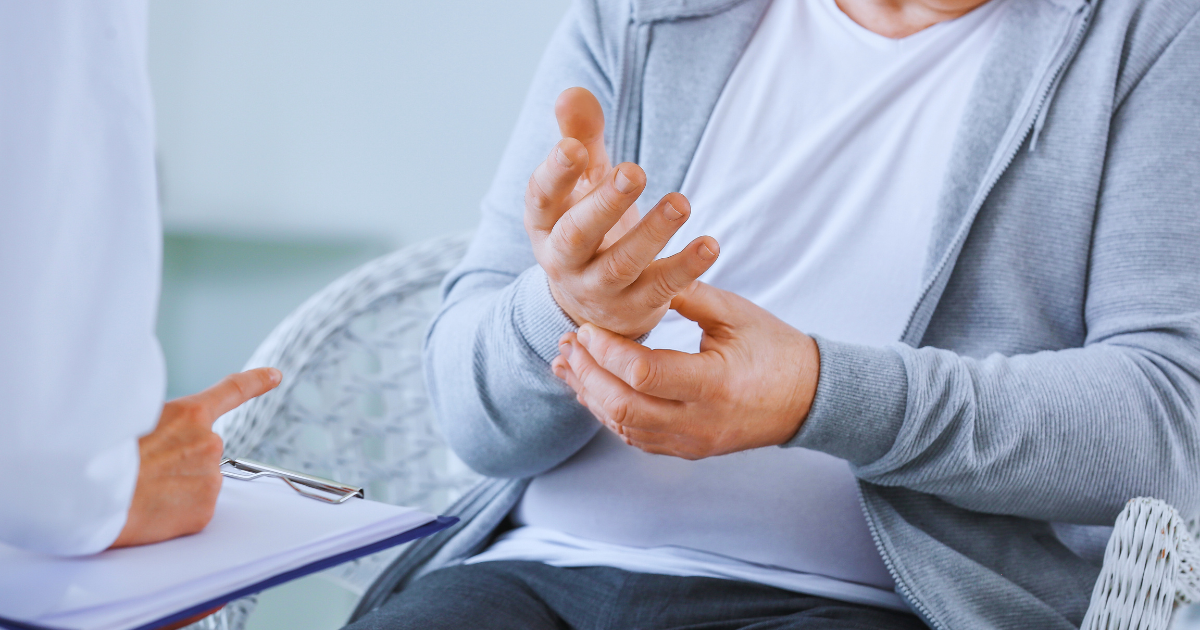Proper nutrition plays a significant role in managing Parkinson’s disease. While medication and therapies are essential, what a patient eats can have a direct impact on their energy levels, medication absorption, and overall quality of life. Patients often ask, “What foods should I eat or avoid?” or “Can diet really improve Parkinson’s symptoms?” The answer is: Yes, when combined with medical treatment, the right nutrition can help maintain muscle strength, prevent constipation, and support brain health. In this blog, we’ll explore how Parkinson’s affects nutrition, what foods to focus on, and practical eating tips for patients and caregivers.
How Parkinson’s Disease Affects Nutrition
Parkinson’s disease can interfere with nutrition in multiple ways due to both physical and metabolic changes. Common issues include:
- Difficulty swallowing or chewing, which can lead to reduced food intake
- Slower digestion, leading to constipation or bloating
- Reduced sense of smell and taste, affecting appetite
- Muscle rigidity or tremors that make eating and cooking difficult
- Medication side effects that cause nausea, dry mouth, or decreased appetite
Understanding these challenges helps in planning meals that meet both energy needs and comfort.
Nutritional Goals for Parkinson’s Patients
Patients should aim to meet the following nutritional goals for better disease management:
- Maintain a healthy body weight
- Improve digestion and bowel regularity
- Support brain function and reduce inflammation
- Prevent dehydration
- Enhance medication effectiveness
Balanced Diet Components for Parkinson’s
A Parkinson’s-friendly diet includes a wide range of foods to supply necessary nutrients:
- Complex Carbohydrates: Whole grains like oats, brown rice, and quinoa support sustained energy
- Lean Proteins: Chicken, eggs, beans, tofu, and low-fat dairy help maintain muscle mass
- Healthy Fats: Sources such as nuts, seeds, olive oil, and avocado reduce inflammation
- Fiber-Rich Foods: Fruits, vegetables, and legumes aid digestion and prevent constipation
- Hydration: Drinking enough water (6–8 glasses daily) is crucial to avoid dehydration, especially in hot climates
Meal Timing Around Medications
A major concern with Parkinson’s medication like Levodopa is how food, especially protein, affects its absorption. Follow these guidelines:
- Take Levodopa 30 to 60 minutes before meals for better absorption
- If nausea occurs, take it with a small carb snack like toast or banana
- Avoid high-protein meals at the same time as medication
- Keep a food and symptom diary to track how diet impacts medication effectiveness
Supplements That May Help
Although whole foods are best, some supplements can be beneficial when taken under medical supervision:
- Vitamin D and Calcium: Help with bone strength and reduce fall risk
- Vitamin B12: Supports nerve function and combats fatigue
- Coenzyme Q10: May improve mitochondrial function
- Fiber Supplements: Helpful for patients with chronic constipation
Foods That May Worsen Symptoms
Some dietary choices can aggravate Parkinson’s symptoms or interfere with treatment:
- Processed Foods: High in sodium, sugars, and unhealthy fats, which may increase inflammation
- High-Protein Foods During Medication Time: Interfere with Levodopa absorption
- Caffeinated Beverages: May worsen sleep problems or anxiety
- Alcohol: Can interact with medications and impair balance
Practical Eating Tips for Parkinson’s Patients
Small changes can make a big difference in managing nutrition:
- Eat smaller, more frequent meals to reduce fatigue
- Use adaptive utensils or weighted cutlery if tremors affect eating
- Choose soft, moist foods if chewing or swallowing is difficult
- Puree or mash fruits and vegetables for easier digestion
- Prepare meals in advance or use ready-to-eat healthy options
- Sit upright during and after meals to prevent aspiration
Managing Constipation Through Diet
Constipation is one of the most common Parkinson’s symptoms. To reduce it naturally:
- Increase fiber intake gradually through fruits, vegetables, whole grains, and seeds
- Drink plenty of water and clear fluids throughout the day
- Include probiotics like yogurt or buttermilk for gut health
- Avoid skipping meals, which can slow digestion further
Special Diets for Parkinson’s Patients
While there’s no universal Parkinson’s-specific diet, certain patterns show promise:
- Mediterranean Diet: Rich in fruits, vegetables, fish, and olive oil—linked to better brain health
- DASH Diet: Originally for blood pressure control, it supports cardiovascular and neurological health
- Low-Protein Evening Meals: Help with night-time medication efficacy
Always consult a doctor or dietitian before adopting special diets, especially when on medications.
How Caregivers Can Help With Nutrition
Caregivers play a vital role in ensuring proper nutrition for Parkinson’s patients:
- Plan balanced meals that are easy to chew and swallow
- Ensure adequate hydration throughout the day
- Monitor weight changes or appetite loss
- Keep track of side effects related to food or supplements
- Coordinate with a dietitian to adapt meals as symptoms progress
When to Consult a Dietitian
Professional guidance may be needed if a patient:
- Loses weight unexpectedly
- Is experiencing chronic constipation or malnutrition
- Has difficulty swallowing or chewing
- Needs customized plans around medication schedules
Conclusion
Nutrition may not cure Parkinson’s, but it certainly improves the quality of life, helps manage symptoms, and supports overall well-being. Following the right dietary practices, adjusting food choices around medications, and staying hydrated can make everyday life easier. Whether you’re a patient or caregiver, simple, thoughtful changes in food habits can go a long way.
Internal Links
External Links





